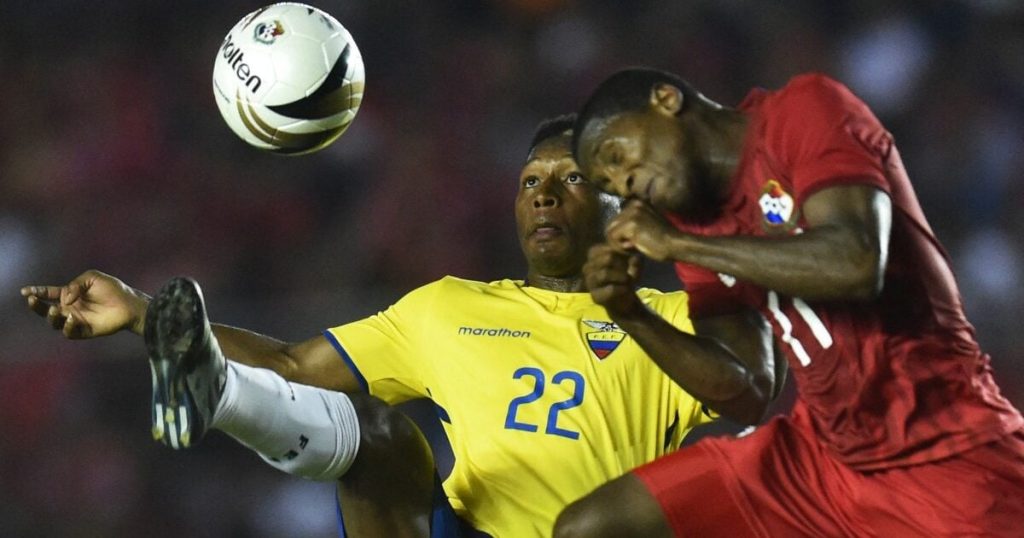The murder of Ecuadorian soccer player Jonathan “Speedy” Gonzalez marks a grim milestone, becoming the third athlete slain in the South American nation since the beginning of September. This tragic incident underscores the escalating violence plaguing Ecuador, particularly within its coastal regions, where drug-related crime is rampant. Gonzalez, 31, was fatally shot inside a house in Esmeraldas province, a region bordering Colombia known for its intense drug trafficking activity. The attack also claimed the life of another individual, whose identity remains undisclosed. While authorities have yet to pinpoint a specific motive, the backdrop of Esmeraldas and the country’s broader struggles with organized crime cast a long shadow over the investigation. The killing raises serious concerns about the safety and security of athletes and citizens alike within a nation grappling with an alarming surge in violence.
Ecuador’s geographical location, sandwiched between Colombia and Peru – the world’s largest cocaine producers – has made it a central hub for drug trafficking. A staggering 70% of the global cocaine supply is estimated to flow through the country, fueling the growth of powerful criminal gangs and exacerbating an already fragile security situation. The influx of these organized crime groups has had a devastating impact on Ecuador’s homicide rate. From a relatively low rate of six per 100,000 people in 2018, the number skyrocketed to a record high of 47 in 2023, before showing a slight decrease to 38 in the previous year. This dramatic increase reflects the pervasive influence of drug-related violence and the challenges faced by law enforcement in containing it. The murders of athletes like Gonzalez highlight the vulnerability of individuals even within the public sphere.
The killing of Jonathan Gonzalez echoes a similar incident that occurred earlier in September. Two players from the second-division team Exapromo Costa FC, Maicol Valencia and Leandro Yepez, were also victims of a fatal shooting in the coastal city of Manta. Valencia died at the scene, while Yepez succumbed to his injuries two days later. The club attributed the attack to a case of mistaken identity, suggesting the players were not the intended targets. This, however, does little to alleviate the concerns surrounding the escalating violence and the apparent ease with which firearms are used to settle scores.
These targeted killings of athletes are not isolated incidents but rather symptomatic of a broader societal issue. The violence transcends the sports world, impacting communities across the country and creating an atmosphere of fear and insecurity. The fact that athletes, figures often held in high regard, have become victims underscores the pervasiveness of the threat and the urgent need for comprehensive measures to address the root causes.
Jonathan Gonzalez’s career trajectory highlights the interconnectedness of the soccer world across Latin America. Having played for Olimpia in Paraguay and Leon in Mexico before joining the second-division team 22 de Julio FC in Ecuador, Gonzalez’s journey reflects the common practice of players moving between clubs in different countries. This mobility underscores the regional impact of his death, resonating not only within Ecuador but also within the broader Latin American soccer community. His passing has elicited condolences from the Ecuadorian Football Federation and various local clubs, highlighting the sense of loss felt across the sporting landscape.
The recurring violence and the targeting of athletes in Ecuador necessitate a multi-pronged approach from authorities. This includes strengthening law enforcement efforts to dismantle criminal networks, enhancing border security to curb drug trafficking, and implementing social programs aimed at addressing the underlying socio-economic factors that contribute to crime. Furthermore, fostering a culture of respect for life and promoting peaceful conflict resolution are crucial for creating a safer and more secure environment for all citizens. The murders of Jonathan Gonzalez, Maicol Valencia, and Leandro Yepez serve as stark reminders of the high cost of inaction and the urgent need for comprehensive solutions to address the escalating violence.


